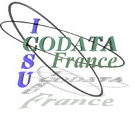PRESENTATION
Public Data
This group addresses the matter of Public Data from two viewpoints:
- Access to public data dealing with political science and closely related to democracy and a transparent mode of governance.
- The reuse of these documents posing the problem of the re-exploitation of these data with socio-economic issues.
Our premise is that these two axes are a single whole; there is no reuse without accessibility.
Our approach is multidisciplinary with, as a basis, the theories of information and communication sciences. It poses the question of documents, information and data in the interests of public policy in connection with the new technologies, always bearing in mind the economic issues.
Several issues will be dealt with.
Data literacy
The control of information is a vital concern in XXIst century daily life. It is “an integrated whole of all the necessary competencies needed by adults to manage efficiently the diverse aspects of their lives.
This includes individual capacity to:
- Recognise one’s needs regarding information;
- Find the information and assess its quality;
- Retrieve and compile the information;
- Use the information efficiently and ethically;
- Use the information to create and communicate knowledge”.
Media literacy
As for the media literacy, it is an essential element for guaranteeing a democratic society.
Media literacy is understood as the “possession of knowledge required to use both old and new media technologies to retain a critical distance with regard to media contents, at a time when the media are one of the greatest forces at work in society. (Horton, 2007)
CHAIR
![]()
Joumana BOUSTANY, Board Member, Comité CODATA France
Assistant Professor, Gustave Eiffel University
USEFUL LINK
![]()

